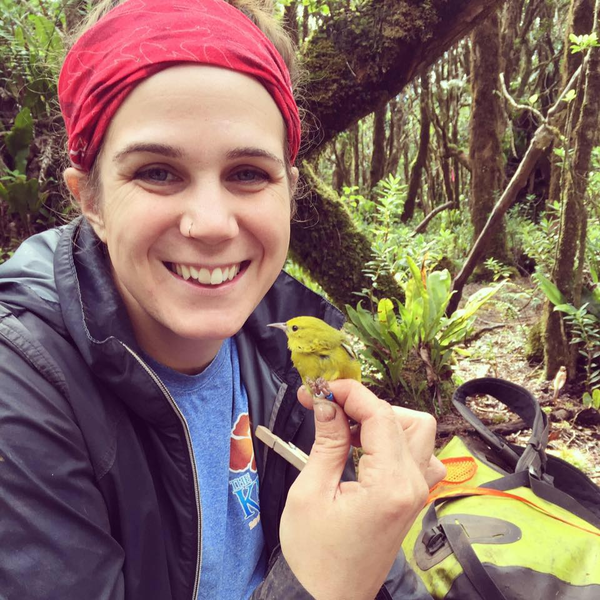
INHS Seminar - The Power of Poop: Insights into Hawaiian Honeycreeper Conservation through DNA Metabarcoding
- Event Type
- Seminar/Symposium
- Sponsor
- Illinois Natural History Survey Seminar Committee
- Location
- 1005 Forbes Natural History Building, 1816 S Oak Street, Champaign
- Date
- Jan 31, 2023 4:00 pm
- Speaker
- Dr. Maria Costantini, Postdoctoral Researcher, Illinois Natural History Survey
- Contact
- Mark Davis
- davis63@illinois.edu
- Views
- 115
- Originating Calendar
- INHS Events
This seminar will be held in room 1005 Forbes Natural History Survey, 1816 S Oak Street, Champaign or on Zoom here | Meeting ID: 853 1107 8339 | Password: 067918
Abstract: The Hawaiian honeycreeper lineage (subfamily: Carduelinae) is one of the quintessential examples of an adaptive radiation. In modern human history, however, the majority of the 56+ species that evolved from a Eurasian finch have gone extinct, and most of the extant species are experiencing severe population declines. Currently, urgent management actions are being taken to prevent the extinction of the lineage, including captive breeding and translocation efforts. I used DNA metabarcoding of fecal samples to study the diets and gut microbiomes (GM) of Hawaiian honeycreepers and inform management decisions of these imperiled species. I first focused on two critically endangered species that have recently been brought into captivity for conservation breeding efforts. Previous work on other species has shown that captivity can negatively affect individuals’ gut microbiome. The GM is known to strongly influence the health, fitness, and behavior of its hosts, yet what drives its formation and how the GM is affected by environmental changes is not well understood across species. I then characterized the diet of the forest birds on the island of Kauaʻi, which has been an island of particular concern due to the recent rapid population declines of several species. I found that Lepidoptera are key components of all bird diets regardless of foraging guild, that there is evidence for resource partitioning between closely related species, and that the diet of an introduced bird is not distinct from native species. Finally, I investigated how three main factors contribute to the composition of GMs across the extant Hawaiian honeycreeper lineage. I looked at the relative roles of host phylogeny, diet, and geography, and found that geographic distance was associated with the largest effect on the variation within honeycreeper microbiomes. The results from this work can be used by wildlife managers to improve Hawaiian honeycreeper conservation strategies, protecting and bolstering the populations of these stunning species into the future.